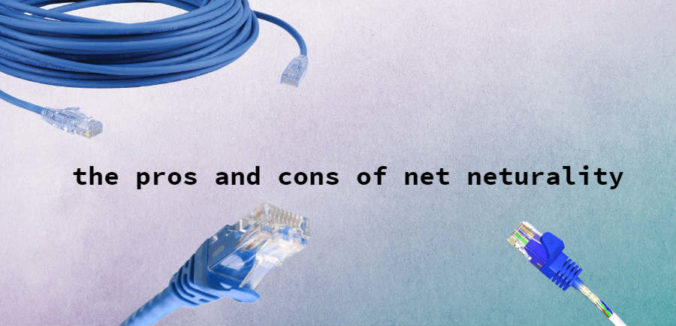The net neutrality debate has been an ongoing fight between consumers and telecom giants. This past summer, the Internet held a day of action to raise awareness against the Federal Communications Commissions attacks. Unfortunately, this was not enough.
Just this Tuesday, the FCC announced a plan to repeal regulations set by the Obama administration. This proposal will allow ISPs to throttle Internet speeds and allow companies to charge extra fees for high-quality streaming and other services.
While this may sound bad for consumers, telecom providers argue that there are benefits to the repeal.
LNP has the rundown on the pros and cons of net neutrality.
What Are The Pros Of Net Neutrality?
- The Internet remains neutral. This one is self-explanatory. Aside from illegal content, regulations will not exist. Essentially, this means that an ISP cannot block access, change services, or alter the flow of data to customers.
- Regulations are in place for illegal activities. Many worry that without regulation, illegal content and activity will run rampant on the Internet. This is not the case. ISPs are treated as a regulated common carrier, preventing activities such as illegal file sharing.
- It protects freedom of expression. Websites such as blogs, services, and businesses that abide by the law are able to operate legally. As long as laws go unbroken, content will not be censored. Without net neutrality, ISPs could potentially censor slanderous content or even content they do not agree with.
- Companies can continue to innovate. In the past, companies started and grew on an equal playing field. With net neutrality, big companies and small startups will have access to the same resources and capabilities, allowing innovation of products and services.
- ISPs are classified as a utility provider. Public utilities provide services to maintain our quality of life. Many argue that the Internet is as essential to the modern lifestyle as water and power. Utilities are provided to everyone unless they refuse to pay for them. Without net neutrality, the Internet could become a luxury that many cannot afford.
- ISPs cannot raise prices on services.
What Are The Cons Of Net Neutrality?
- There is no compensation for data usage. In this day and age, services like Skype are offering real-time video calls. Netflix offers high-definition video streaming. These services utilize massive amounts of data for free on an ISPs infrastructure.
- Improve infrastructure by increasing prices. There are many business and individuals that use large amounts of bandwidth. Furthermore, without net neutrality, ISPs can charge more for their data consumption. In essence, the additional income will fund upgrades such as advanced fiber networks.
- An unregulated Internet is an uncensored Internet. Nowadays, anything can be posted on the Internet under the guise of “freedom of speech.” Consequently, as a result, obscene and insensitive content easily ends up on the Internet.
- All in all, Net Neutrality may be “more concept than rubric”. At ZDNet, David Gerwitz argues that Net Neutrality “may not be what you think.” According to Gerwitz, the situation surrounding Net Neutrality is political theatre and the FCC changes proposed by Ajit Pai will not cause any major changes, as Net Neutrality is Myth.

Leave a Reply